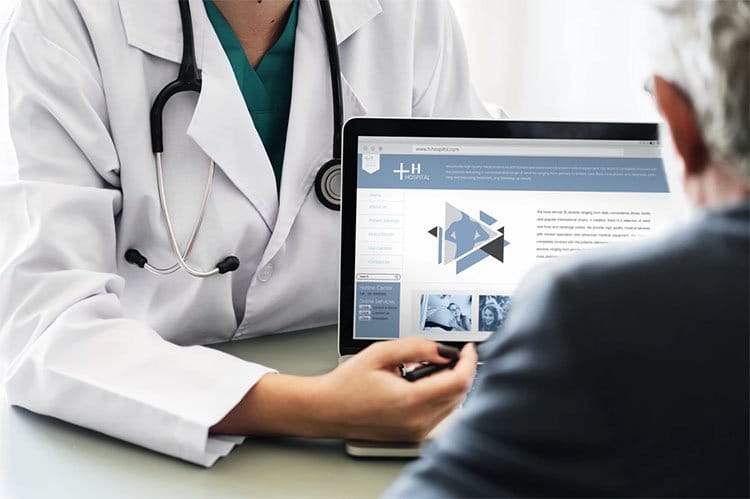The healthcare system plays an important role by improving interoperability. This is especially true as technology changes constantly and there are more options to exchange health information. HIE solutions are becoming more popular as providers realize the benefits it can bring to patient care. This has led to increased use of HIE across all countries. Here are some benefits of health information sharing.
Through a health information exchange, medical providers can securely access patient records and exchange them with other doctors. These records are vital as many medical records remain on paper. This data can be difficult to send and receive, especially if it is done by phone, fax or mail.
Americans are extremely mobile today. Although you may be a resident of the Northeast, you will likely travel to that region regularly for work, pleasure, and to visit family and friends. Any of these stays could require a change of healthcare provider due to an injury or illness.
Maybe the practitioner should be able to access the patient’s electronic medical records, which include current test results, diagnoses and prescriptions. Hospitals, communities, states, and other entities must have the ability to exchange health information (HIEs) in order to facilitate health information exchanges.

More health care providers are joining health information exchange (HIE) to better track and securely share complete patient medical histories. HIE facilitates coordinated patient care, reduces duplicative treatment and prevents costly errors. HIE is a growing practice among health professionals because of the clear need and significant HIE benefits. HIE benefits can be summed up in the following:
7 Advantages of Health Information Exchange:
1. Provides Efficiency
HIE is a way to ensure patient safety by reducing medication and medical errors. The data is securely stored in a database, and can be exchanged via a digital channel.
Digital storage of health information eliminates the need to keep paperwork and lowers the risk of losing it. The data exchange process can be simplified in healthcare to improve health monitoring and reporting.
The exchange of health information in digital format saves data, which means that there is no need to do any paperwork or handle it. Digital storage reduces the chance of data being lost.
2. Acts as a support tool
The HIE system is a clinical decision support tool that doctors and healthcare providers can use to improve their treatment and provide more effective care. Health reporting and monitoring can be improved by reducing the complexity of data exchange in healthcare.
HIE systems can be used as support tools by all healthcare providers. They eliminate redundant or unnecessary testing and can provide clinical decision support and insight for improved treatment and outcomes.
HIE can be used to eliminate redundant and unnecessary testing for healthcare providers and improve the quality and outcomes of healthcare delivery.
3. Cost Reduction
HIE systems that are efficient can help reduce healthcare costs by providing digital information and patient data. It also gives personal health information to healthcare customers.
HIE systems that are efficient will lower health-related expenses. It is easy and affordable to provide up-to-date data to providers, patients, and third-party agencies.
This outcome was supported by 18 studies, 14 of which (77.8%), found HIE to have a positive effect. HIE was specifically associated with lower total care costs, laboratory test costs, and overall measures for return on investment.
4. Healthcare Quality
This outcome was supported by 10 studies, 9 of which (90%) showed a positive effect of HIE. HIE was found to be associated with better medication reconciliation, immunization, and completeness of health records, as well as a reduction in care disparities, and HIV-related quality care measures.
5. Manages personal health information
Customers help to collect and manage personal health information. Health information interchange facilitates healthcare interoperability. As technology advances, new methods of transmitting medical information are constantly being developed. As health care professionals become more aware about the benefits of sharing information, this approach is gaining momentum. Here are some benefits to sharing your health data:
6. Accuracy database
HIEs reduce errors and protect patient health by coordinating care and reducing medication and medical errors.
Databases are used to store and distribute information. This greatly reduces the chance of errors in medical and pharmaceutical medicine. Streamlining healthcare data flows makes it easier to improve health reporting and monitor. Health information exchange can improve healthcare delivery quality and effectiveness by reducing the number of unnecessary tests.
7. Public Health and Disease Surveillance
This conclusion was supported by 10 studies, 8 of which (80%) showed a positive effect of HIE. HIE was associated with better population immunization rates, reporting times, identification of drug-seeking behaviors, and improved surveillance of high ED utilizing patients.
More opportunities
Future opportunities can be opened up by having access to a robust health information exchange, such as cross-facility utilization and advanced clinical and financial analysis.
HIE systems are also used to aid governments in countries around the world by providing timely access to health information. They can help governments plan and prioritize programs that improve people’s health.
Final Words:
According to the current systematic review, studies with stricter designs reported more benefits from HIE. These benefits include reduced duplicate procedures, lower imaging costs, and better patient safety. Studies that evaluated community HIEs had a higher likelihood of finding benefits than those that assessed enterprise HIEs and vendor-mediated exchanges. These findings are positive for HIEs ability deliver on expected improvements in care delivery, and decrease in costs.
Modern healthcare is driven by information. Documents are stored in EHR systems, and can be exchanged.
HIE is becoming a cornerstone for better clinical workflows, patient outcomes, and more healthcare organizations are beginning to pay attention to the many benefits of health data exchange.

